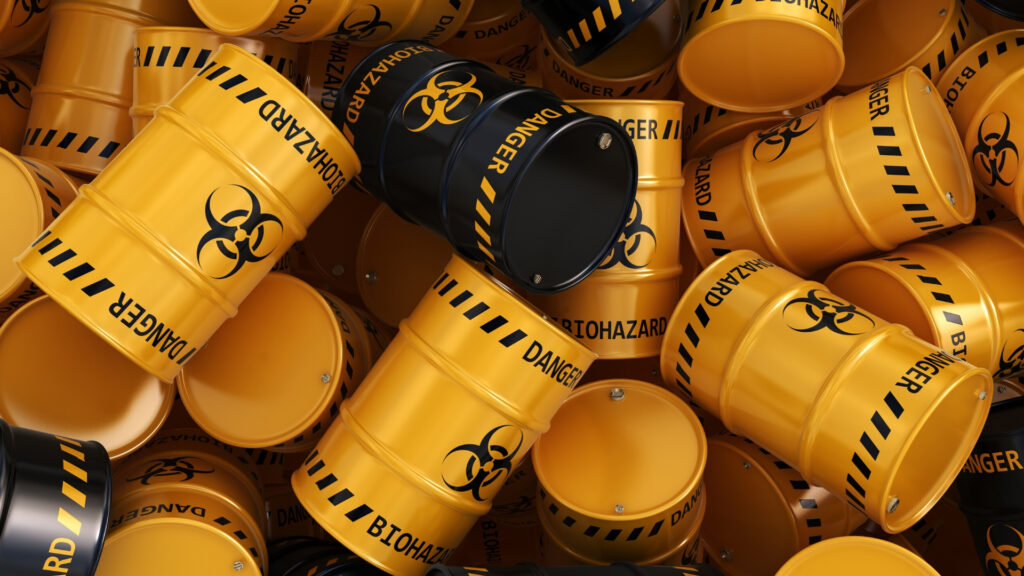The devastating impact of COVID-19 may inspire some States to consider the development of biological weapons in the future. But a darker bioweapons future is not inevitable.
During the Cold War, several major military powers including the United States and the Soviet Union invested considerable resources in biological weapons programs. Even so, they struggled to develop functional weapons able to withstand a range of environmental conditions let alone be of strategic use. Producing biological weapons with predictable, significant effects – as opposed to crude opportunistic efforts to spread pathogens – remains a complex feat. Most of the world’s nations eventually renounced these capabilities and joined the 1972 Biological Weapons Convention (BWC).
Major advances in the life sciences in recent decades raise the possibility of technical improvements that would make Cold War-era biological arms more effective or herald a new, more targetable generation of these weapons. Moreover, the mass death, disruption and huge financial cost caused by the COVID-19 pandemic points to biology’s potential to cause harm on a global scale. As such, in today’s climate of increased tension and great power competition, the possibility that certain states might choose to exploit biology for hostile purposes cannot be excluded.
Yet it is wrong to conclude that the 21st century will be a bioweapons century and we should avoid falling into the trap of technological determinism. Militarily useful biological weapons programs still require sophisticated organization including funding, contracts, equipment, facilities, and considerable expertise. Such programs are beyond most non-state actors and require State support. As such, it is useful to consider the incentives and disincentives that can – and do already – shape states’ strategic choices.
There are a number of potential paths that should substantially reduce the incentives (and increase the disincentives) to bioweapons development in the coming decades. These paths involve governments working at the national level with industry, academia and civil society to build a web of prevention against biological weapons. But this needs to be complemented with dedicated and technically authoritative global mechanisms in three areas.
First, most public health and biological warfare experts agree it is crucial to build and empower mechanisms for collaborative, coordinated disease surveillance, detection, reporting and response. Key to this are the 2005 International Health Regulations (IHR), which states designed to “prevent, protect against, control and provide a public health response to the international spread of disease”. National reporting on outbreaks of disease in compliance with these regulations has sometimes been poor. The solution is not to discard these tools but to improve them for example through enhancing the “speed, consistency and completeness” of states’ disease reporting. As the COVID-19 pandemic already shows, public health surveillance and response capacity minimizes the impact of disease outbreaks – regardless of whether these are deliberate or natural in origin.
Second, states need to strengthen the international prohibition against biological weapons. 183 States have ratified the BWC, which prohibits the development, production, acquisition and use of biological weapons. Despite international efforts in the 1990s, it still has no effective provision to assess compliance or investigate allegations of biological weapons development. And state transparency about their “biodefense” activities remain limited and voluntary.
The next BWC review conference in late 2021 offers states the chance to rectify these weaknesses. This requires a fresh effort to develop systems to assess compliance, taking into consideration the many advances in relevant science and technology since the 1990s. States could further use this opportunity to revitalize measures to improve transparency by updating existing Confidence Building Measures and encouraging greater submission and analysis of these measures. Progress will also require fostering international cooperation in biotechnology and building global networks of experts to detect and respond to the use of biological weapons. This step could dampen the effects of biological weapons should they ever be used.
Third, the United Nations needs geographically representative teams of trained, technically competent experts capable of investigating biological weapons allegations and suspicious outbreaks of disease – even on the territories of the Security Council’s permanent five members, if necessary. In this regard, since 2006, some progress has been made in building-up the UN Secretary-General’s Mechanism for Investigation of Alleged Use of Chemical and Biological Weapons (UNSGM). Currently this mechanism addresses only the alleged use of biological (and chemical) weapons. It has no mandate to investigate disease outbreaks or the alleged development and production of biological weapons. Yet these investigative functions would be valuable – both to deter and detect those pursuing biological weapons and to dispel misperceptions and misinformation pertaining to legitimate biological research activities and natural disease outbreaks. Had such a mechanism been ready, it might have helped to independently clarify the merit of unsubstantiated allegations related to the origins of COVID-19.
Strengthening multilateral agreements and fostering cooperation between these institutions will take time and resources. Yet the cost of investing in these global instruments is a fraction of the tragic human costs of COVID-19, not to mention the $1 trillion estimated cost to the global economy in 2020.
The multi-stranded approach outlined here is not enough on its own to avert the development of bioweapons. But it would contribute materially to improving the chances of detecting violations of the longstanding norm against biological weapons, as well as wider efforts under the Sustainable Development Goals to build effective, accountable and inclusive institutions and contribute to the fight against infectious disease. If the COVID-19 pandemic has illustrated anything clearly, it is the value of more coordinated and better resourced international action against the spread of disease, whatever its origin.
James Revill is a Researcher in the WMD Programme at UNIDIR.
John Borrie is the UNIDIR Research Coordinator and Programme Lead on the WMD Programme.
This article was originally published in Spanish by El Pais.
